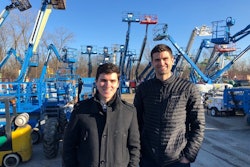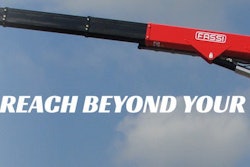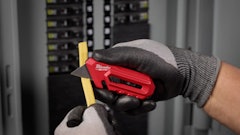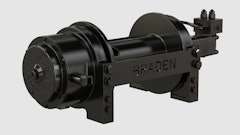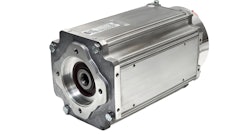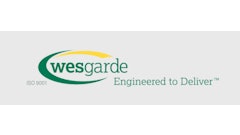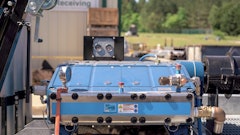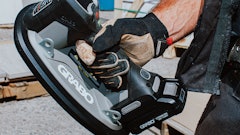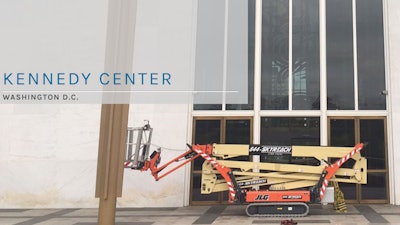
Gearflow sat down with Kevin Gray to learn about the importance of owning a niche in the construction equipment rental industry.
Kevin Gray has worked in the equipment rental industry for over 20 years. In the fall of 2015, Highreach Equipment, the company Gray worked at, shut its doors. When this happened, he wasn’t sure if he wanted to get back into the equipment industry. But he had a number of customers in glazing that kept telling him he needed to come back.
Eventually, Gray decided to open Skyreach Equipment Rental. But while he had many glass contractors lined up, he had no manipulation devices. So he approached a couple of friends who were willing to listen and take the risk on a high-risk capital loan. With that money and his friends’ support, Gray was able to open Skyreach Equipment in Glen Burnie, MD, 20 minutes outside of Baltimore.
To build up his fleet, Gray reached out to a few manufacturers he had previously built connections with and explained his scenario, asking these OEMs to help him start this new business and work with him. Eventually, many of the OEMs agreed to work with Skyreach.
The risks proved worth it. Today, Skyreach is succeeding across Maryland and the surrounding areas. With this success, it has received rental calls from across the country.
Find Your Niche
For most, if not all, equipment rental companies, knowing your specialization is extremely important. Gray recognizes this and has found his niche in glazers. Following are the top five strategies he used to determine Skyreach’s niche:
1. Don’t blend in - differentiate
Skyreach focuses on renting and selling specialized equipment for glazers, but that isn’t all, Gray says. “The niche is key. Any rental company can rent a boom lift, forklift or scissor lift,” he states. “But if you offer something specific that people don’t have, you become a one stop shop when they also need a scissor lift.”
Gray is a believer in the power of hands-on education. Currently, he is remodeling his store to house a fully functional training facility to educate glazers on various glass manipulators. This facility will set Skyreach apart from its competitors.
“We gutted the whole thing, put new walls up, and all new paint,” Gray notes. “Once this is done, it will be a great thing for the current and future glazers in the area.”
2. Assess possible challenges
“Glass [equipment] is tough,” says Gray. “The machines are very specific, and there isn’t a ton of high-dollar equipment. For example, it’s a lot easier to rent a $24,000/month truck than it is to rent out a $7,000/month specialty crane.”
With a highly specific product, rental can be tough unless you know a lot of people that use the equipment regularly. For Gray, his expertise, along with his strong connections, set him apart from his competitors.
3. Build strategic connections
Gray went all-in on the glass manipulation niche after visiting the Bauma show in Germany.
“We were looking around [at Bauma] and saw a huge Jekko glass manipulator. We started talking to the guys from Jekko, and it turns out their U.S. headquarters is in Baltimore,” says Gray. Gray soon started telling his customers about the company and started to showcase its products. “Eventually, we got in with them and some others. Manufacturing is very competitive. Certain customers like certain machines, so I’ve found it is good to have a variety.”
Building strong, mutually beneficial connections with manufacturers helps Skyreach to serve its customers better. Skyreach ensures customers' needs are always fulfilled and provides customers with a friendly environment. This helps the business build loyal clients.
“I found this niche in glass manipulation attractive to the glazers. That’s where some of my best customers are,” says Gray. “Glazers keep the machines very clean due to the nature of their work. This means less maintenance and less headache for us. We cater to them with all of our equipment. Everything has glazing packages on, powered platforms, and all my forklifts are enclosed cabs with heat. I tailor all of the machines to the glazers’ needs.
“These glass guys are highly trained; they know what they're doing,” he continues. “Some of the glass manipulators I work with are so knowledgeable that I drop the machines off, and I don’t see them for seven to eight months. The whole time, I don’t hear a peep from those guys, and I don’t worry because they know what they’re doing.”
Even though Gray might charge more than some of his competitors, his customers keep coming back. “I’d say about 75% of our usual customers are glazers,” says Gray.
The relationship is mutually beneficial for both the contractors and Skyreach. The glazers can book with the rental center worry-free and know that the machines will be clean, running correctly and have all the necessary upgrades. At the same time, Gray knows his equipment will be cared for properly and treated with respect.
4. Add value for your target customer
As in almost any business, if you don’t provide some sort of value for your customers, you aren’t going to go very far. A few of the many ways Gray delivers value to his customers is by tailoring the machines to the glazer’s needs, helping to troubleshoot if something goes wrong and, of course, building the training center. On top of the training program, Gray is also working on an in-house apprenticeship training program.
“Once we start the full-on glass apprenticeship program, we can do the whole glass manipulation side of installing glass. We will use all the different types of manipulators - hanging manipulators, walk-behind manipulators and crane-mounted manipulators,” Gray points out. “We'll be working on operating manipulators and doing transfers from one manipulator to another. This way, the students can get familiarized with both the remotely operated and the manually operated manipulators.”
Gray believes that by starting this training facility and the glass apprenticeship program, there will be multiple positive outcomes. First, it will allow contractors to learn which machines they like more than others to assist in buying and renting decisions. Second, it will help new talent gain real-world exposure in the safety of a training facility on various machines.
To summarize a real-world impact, Gray says, “Think about it, wouldn’t you much rather hire a kid that can say, ‘I have operated all these glass manipulators, and I know how they work with glass,’ instead of someone who has never operated a manipulator before?”
5. Be a niche-xpert
None of these steps can be fully met unless you are an expert in what you specialize in. For Gray, his years in the industry helped him to create a company that is very targeted.
Gray saw a way to come into a niche market and start a rental company that has a competitive edge. He weighed the possible challenges he might face and found solutions to all of them. He strengthened his previous connections and made new ones. Finally, he noticed a specific way to offer value to his current and future customers that cannot be found elsewhere.




